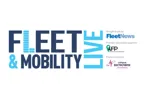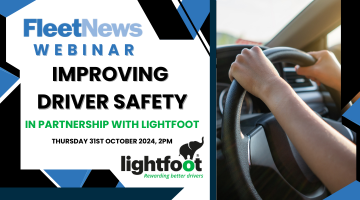The majority of fleets are unaware of new safety legislation that could result in individuals who fail to manage risk for at-work drivers being jailed for up to two years.
According to a Fleet News poll, 74% of respondents said that they had no knowledge of amendments to the Health and Safety at Work Act, called the Health and Safety (Offences) Act, introduced in January.
ACFO chairman Julie Jenner said: “I’m disappointed to note that people have missed this amendment to the legislation.
"They may be waiting to see a big prosecution case before they sit up and take notice but that’s a dangerous approach – you don’t want that test case to be your fleet.”
The new rules have increased the penalties for breaches of the legislation, raising the maximum fine from £5,000 to £20,000 and broadening the range of offences for which individuals can be jailed.
Unlike Corporate Manslaughter and the Corporate Homicide Act, a breach of the Health and Safety (Offences) Act will not have to result in death.
In addition, the new legislation is aimed at punishing individuals, whereas Corporate Manslaughter and Corporate Homicide target rogue organisations.
For example, it could be used to prosecute fleet managers who have turned a blind eye to driving disqualifications, lack of insurance or poorly-maintained vehicles and an accident has occurred because of one of these factors.
“Those investigating a road crash will aim to identify who is responsible for managing occupational road risk,” explained health and safety specialist lawyer Michael Appleby, of Housemans in London.
“Where no evidence of an organisation planning, delivering, monitoring and reviewing road safety can be found, charges could result.
“Businesses must be able to demonstrate how they manage road risk and that somebody is responsible for managing that risk.”
David Faithful, consultant solicitor at Lyons Davidson, stressed the need for fleet managers to follow five steps: identify the danger; carry out a risk assessment; implement measures to reduce risk; train where appropriate; and audit trail the process.
“Employers often carry out a risk assessment, but fail to properly implement the recommendations or to create the audit trail,” he said.
It is estimated that 850 to 1,100 people are killed and 90,000 to 118,000 seriously injured in work-related road collisions each year in the UK.
Judith Hackitt, chair of the Health and Safety Executive (HSE), said: “Our message to the many employers who do manage health and safety well is that they have nothing to fear from this.”
But she warned: “We will continue to target those who knowingly cut corners, put people’s lives at risk and who gain commercial advantage over competitors by failing to comply with the law.”
Financial benefits
Employing a comprehensive road risk management strategy for those who drive for work can be an effective money-saving measure.
Case study evidence from ‘business champions’ supports industry research that concludes investing in safety delivers financial benefits to the bottom line.
With Britain in the depth of a recession, financial savings of at least 30% from reductions in road crash rates can accrue if companies implement a range of best practice recommendations.
Caroline Scurr, campaign director of Driving for Better Business, said: “Reducing the number of crashes involving at work drivers is proven to save thousands and, in the case of large fleets, millions of pounds.”
Gateshead Council has recorded a near 30% decrease in accidents over the past three years on its fleet of more than 350 vehicles.
Alasdair Tose, transport services manager, said: “By reducing our accident record we are saving taxpayers’ money and ensuring that service levels within the authority’s area continually improve as valuable time is not spent on dealing with the aftermath of an incident.”
Scurr added: “As a result of pro-actively managing the risks associated with at-work driving, companies on average can cut their costs by £527 per vehicle per year.
Other savings can result from a more sympathetic and smoother driving style, including: a fuel saving of 5-7% a year; a 5% reduction in maintenance; and a minimum 4% residual value improvement.
In addition, companies can expect a reduction in insurance premiums of as much as 15% a year and a reduction in their insurance excess.
Grey fleet risk
Organisations operating so-called grey fleets – private cars used for business – need to pay particular attention to the legislation considering the problems they face in managing privately owned vehicles.
For example, Gateshead Council, a ‘business champion’ under the Government’s Driving for Better Business programme, has specific policies in place to deal with the grey fleet issue.
Before employees can submit a business mileage claim they have to make sure their licence and insurance documents have all been checked, that the vehicle has been serviced and, if appropriate, has an MoT.
The council also offers certain employees the option of using a pool or lease car.
A recent HMRC report concluded that there are now up to four million private cars used for business, about half of which are used by public sector employees.
Making sure your company is compliant
- Have all drivers assessed – start with an online risk assessment, online coaching and, as appropriate, on-road driver training with an occupational risk specialist.
- Check all drivers’ licences regularly – complete regular licence checks on registered company drivers to alert department heads to the current status of a driver’s licence and to ascertain whether any remedial driver training is required.
- Keep the driver handbook updated and ensure employees read and acknowledge its contents.
- Have drivers check vehicle’s lights, tyres, oil, screen wash levels and windscreen wipers regularly.
- Ensure all vehicles, including grey fleet, are included in the checks.
- Ensure all health and safety process records, insurance documents and driver and vehicle records are stored and accessible.
- Make sure journeys are necessary and sensibly planned.
Source: Tusker


















Login to comment
Comments
No comments have been made yet.